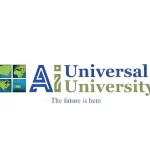Luxury hospitality focuses on creating high-touch guest experiences. With technological advancements, however, the industry is evolving to meet guests’ expectations for seamless, personalised service. Hospitality education now incorporates Education Technology (EdTech) to equip future professionals with practical skills for a tech-driven market.
Here’s how EdTech is preparing students for luxury hospitality by integrating real-world technologies, simulation tools, and practical applications.
Smart Room Technology: Practical Training for Real-World Application
Smart room technology has become standard in luxury hotels, enabling guests to control room settings via smartphone. Recognising this, top hospitality schools are training students to manage these systems, giving them hands-on experience with platforms like Oracle’s OPERA Cloud. This training familiarises students with the tech they’ll encounter in the field, helping them provide the high-tech services today’s guests expect. Simulating guest interactions and service adjustments with these tools prepares students to deliver seamless experiences from check-in to check-out.
Contactless Technology: Ensuring Seamless Service with Hands-On Training
Contactless technology has reshaped service delivery in hospitality, with guests now expecting convenience and minimal physical interaction. In response, hospitality schools are training students in contactless service systems to manage digital touchpoints that enhance guest satisfaction. Students work with keyless entry systems like SALTO KS and Kaba’s RFID technology, simulating tools used in the industry. This experience helps them ensure a smooth arrival and departure process for guests. By working with self-service kiosks and digital concierge apps, students gain the skills to uphold luxury service quality with minimal face-to-face interaction.
AI-Driven Personalisation and Data Analytics: Preparing Students for Tailored Service
Artificial Intelligence (AI) is transforming luxury hotels by enabling personalised guest experiences through data analytics. Hospitality schools are now introducing AI and data analysis courses to teach students how to tailor services. Platforms like Revinate and ALICE allow students to practice analysing guest preferences and managing virtual concierge services. This focus on AI-driven personalisation equips students to offer amenities and services tailored to each guest, such as arranging a favourite drink or adjusting room features based on previous visits. Mastering these tools makes students valuable to the industry, ready to meet the standards of modern luxury hospitality.
Real-Life Case Studies: Learning from Leading Hospitality Brands
Incorporating case studies into hospitality programs brings real-world context to EdTech training. Hospitality schools often use examples from successful hotels to show students how technology can enhance guest experiences and streamline operations. Case studies of Rosewood Hotels’ customisation system illustrate how data analytics can anticipate guest needs, while Four Seasons’ use of chatbots demonstrates how virtual assistants improve guest engagement. By studying these real-life applications, students learn to evaluate and apply similar strategies, developing the critical thinking skills necessary for future roles.
Enhancing Career Opportunities through EdTech Training
As luxury hotels increasingly rely on technology, they seek tech-savvy and service-oriented graduates. Deloitte reports that graduates skilled in digital and AI are 20% more likely to secure high-level positions within five years. Schools like the Glion Institute of Higher Education support this trend by focusing on tech-forward training that makes graduates more competitive. This approach boosts employer satisfaction and gives students the confidence to excel in a tech-centric hospitality landscape.
Adapting to Industry Trends: EdTech’s Role in Preparing for the Future
EdTech prepares students for their first job and enables them to adapt as the industry evolves. By training on current systems, students are equipped to transition smoothly into new roles and stay flexible in a dynamic industry. For example, simulations allow them to practise real-life applications they’ll encounter in top hotels, such as AI-driven personalisation or AI-powered chatbots. These hands-on experiences prove that EdTech isn’t just a theoretical part of education; it’s a practical training ground for tomorrow’s hospitality leaders.
In an industry where personalised, high-tech guest experiences are paramount, EdTech is reshaping how hospitality professionals are trained. By integrating real-world technologies, data analytics, AI applications, and simulations, institutions like Glion ensure students are prepared to exceed guest expectations in a fast-evolving luxury market. For those passionate about merging technology with hospitality, a career enhanced by EdTech offers exciting, cutting-edge opportunities globally.


